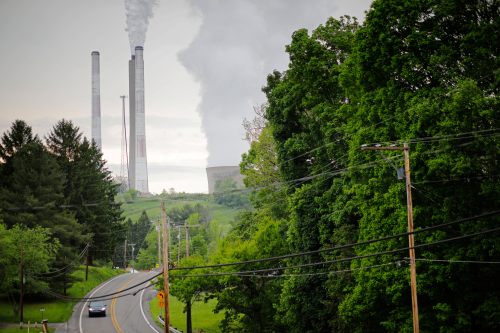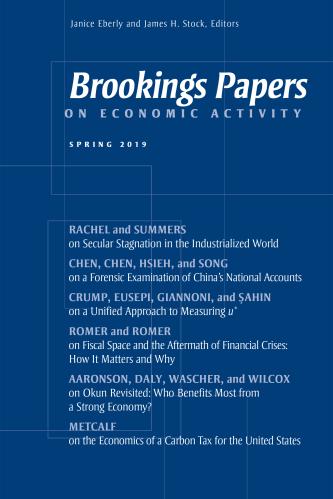This interview is part of the Voices of BPEA series, highlighting women’s leadership in the Brookings Papers on Economic Activity (BPEA), an academic journal published by the Brookings Press twice a year. Each edition of the journal includes five or six new papers on a range of macroeconomic topics currently impacting public policy debates. BPEA is celebrating its 50th anniversary in 2020, and the Spring 2020 conference drafts will be released later this month.
Adele Morris is a senior fellow in Economic Studies and policy director for Climate and Energy Economics at Brookings. She recently served as a discussant for a paper as part of the Spring 2019 BPEA conference.Her research informs critical decisions related to climate change, energy, and tax policy. She is a leading global expert on the design of carbon pricing policies.
What has been your experience with BPEA?
I’ve been going for about eight years. Last year was the first year where I was on the agenda as a speaker; I was a discussant on the paper “The Economics of a Carbon Tax for the United States” by Gilbert Metcalf. Generally speaking I’ve mostly just been an observer of the papers.
In your opinion, what progress has BPEA already made in diversifying economics, and what else can and should it do going forward?
I think the program has made a bit of a conscious effort, certainly to include women as co-editors, and I support that. I still think they need a lot more attention to diversity of authors, the co-authors and the attendees, because it’s a bit of a club-y outfit and I really think they need to look past the ‘usual suspects’ and include people of color, more women, people in different disciplines of economics and try to broaden it out a little bit.
I think to get more women in, they’re going to have to add papers from disciplines other than macroeconomics more often. And I would say, it’s the ‘Brookings Papers on Economic Activity,’ not the ‘Brookings Papers on Macroeconomics.’ So there are parts of economic activity that I think are extremely interesting and reflect major challenges of our time, and could rightfully be considered by that group. And I put the carbon tax paper in there as a perfect example.
The diversity questions facing the Brookings Papers are not unlike the diversity questions facing the profession as a whole.
What would be your advice to women considering a career in economics?
I think my advice for women is pretty much my advice for anybody, if you’re thinking about going to graduate school for a Ph.D. in economics—and that is the credential you need to get to be a full-fledged member of the profession—choose wisely. Choose your field and your school wisely. Ask hard questions about the advising and if you can visit, go see what the culture is like, and how supportive are they of graduate students, not just financially, but in terms of providing a productive and positive culture. Because a Ph.D. is a long slog and it’s pretty miserable to be in a place where you don’t feel supported.
In conclusion, I would say I think the diversity questions facing the Brookings Papers are not unlike the diversity questions facing the profession as a whole, and particularly the elite levels of the profession. I’m glad this issue is more consciously on the radar now; I think it’s improving, but we have a long ways to go.
Special thanks to Maureen Heydt, who conducted and transcribed these interviews while interning at Brookings in spring of 2019.







Commentary
Adele Morris on BPEA and looking outside macroeconomics
March 12, 2020